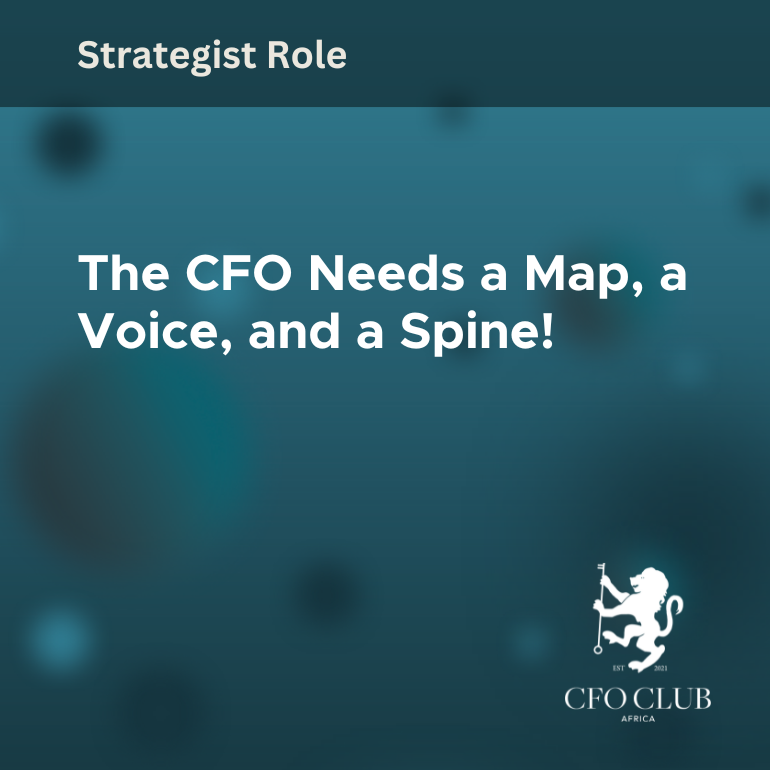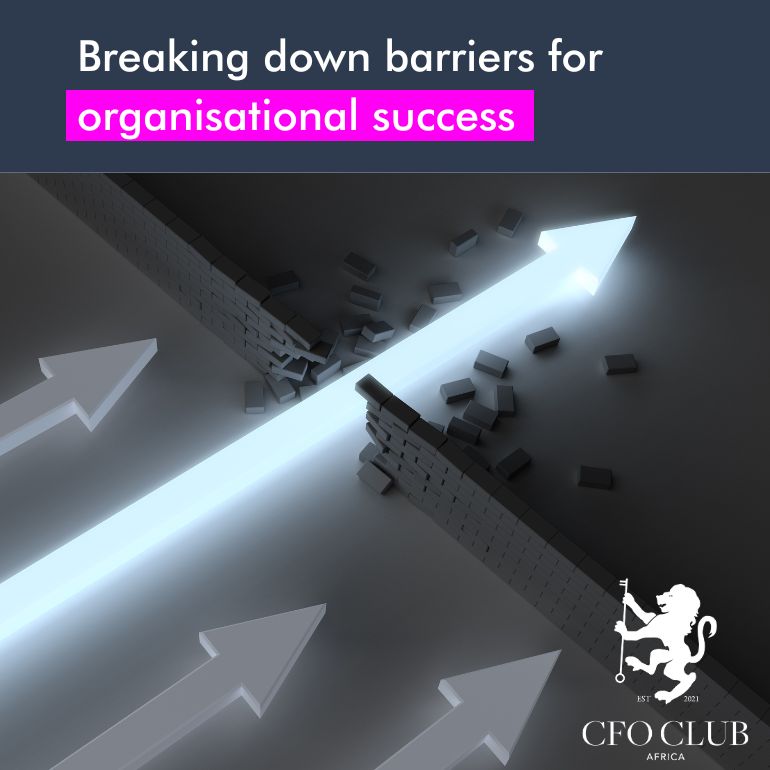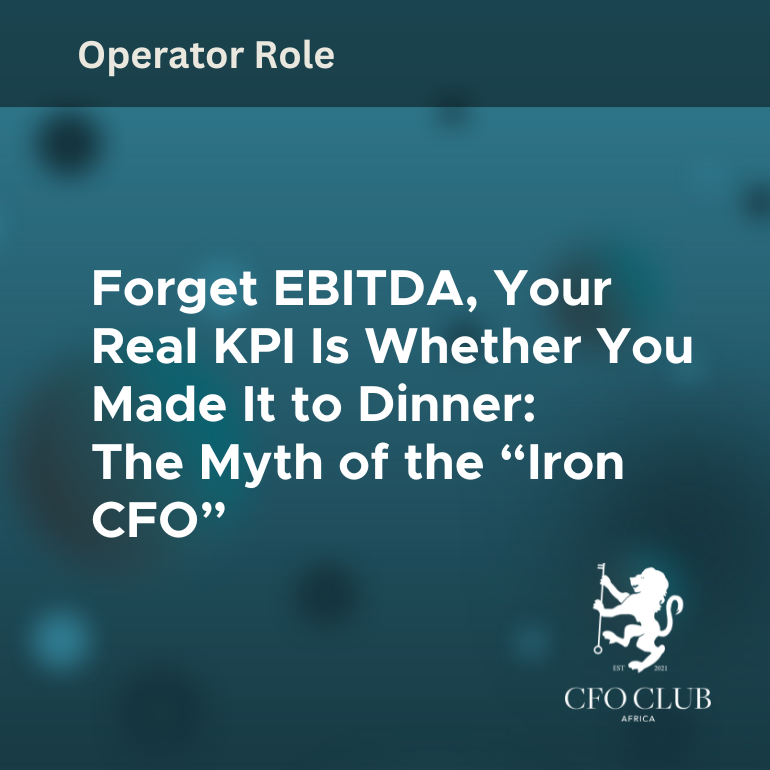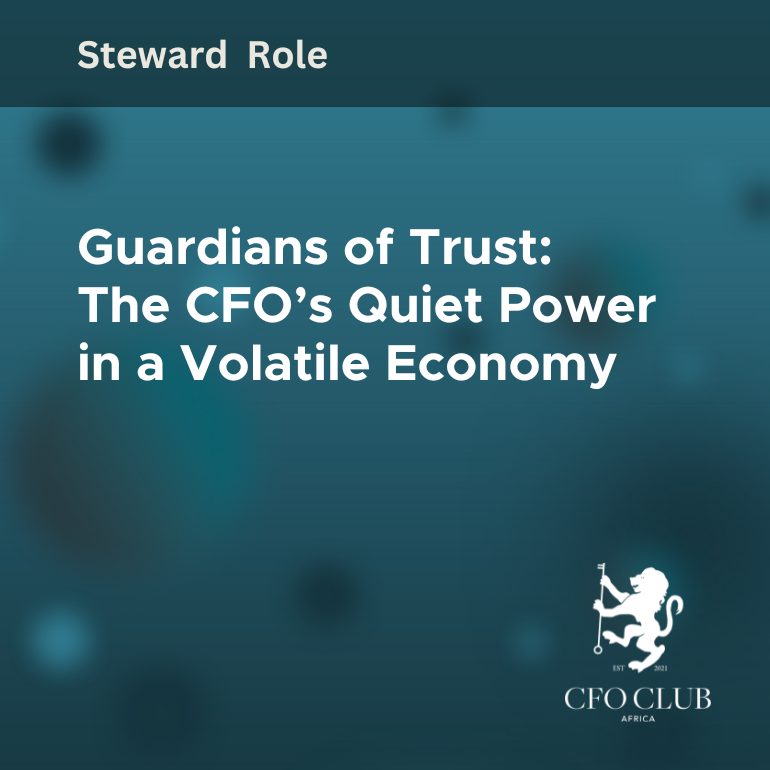The CFO Needs a Map, a Voice, and a Spine!
The CFO Needs a Map, a Voice, and a Spine!
The numbers said hold back. The gut said, “lean in”. The boardroom held its breath. The CFO closed the spreadsheet and spoke with quiet confidence. We are not here to preserve the past. We are here to invest in the future. And with that, the conversation changed.
This is what it means to be a modern finance leader. Today’s CFO is no longer the guardian of yesterday’s results. The CFO is the architect of tomorrow’s direction. For Chartered Chief Financial Officers, this shift is not just a new job description. It is a new kind of leadership.
Strategy is Part of the Role. So is Vision.
There was a time when CFOs supported strategy by validating the numbers and assessing risk. Today, CFOs are expected to shape the strategy itself. This is not about stepping into someone else’s lane. It is about being in the room where direction is set and ensuring that decisions are both bold and financially grounded.
A modern CFO contributes more than financial oversight. They bring clarity. They challenge assumptions early, test business models rigorously, and identify trade-offs that others may miss. Their value is not only in asking what something will cost, but in identifying what it might be worth over time.
The Numbers Still Matter. But the Narrative Drives Action.
Financial accuracy remains a core responsibility. Strong controls, clean audits, and transparent reporting cannot be compromised. But these are no longer the final product. They are the foundation on which real insight is built.
The strategic CFO must take those numbers and make them speak. Not just to the board, but to every key stakeholder. They must be able to explain the financial impact of a pricing model, the risks of a growth plan, and the returns expected from a new product line. And they must be able to do so in language that creates momentum, not confusion.
Risk is Not the Enemy of Progress
CFOs have always been associated with risk management. What has changed is the nature of that risk. It is no longer just about balance sheet exposure or compliance gaps. It includes reputational threats, ESG vulnerabilities, cyber risks, and strategic blind spots.
Today’s CFO must do more than protect the business. They must guide it through uncertainty. This means understanding which risks are necessary to move forward, which risks can be mitigated, and which ones are simply too expensive to ignore.
A strategic CFO does not block bold moves. They ensure bold moves are backed by insight, planning, and the resilience to recover if things shift unexpectedly.
Financial Strategy Shapes the Business Model
When capital is scarce and pressure is high, the CFO’s perspective becomes essential. Financial strategy is not a separate track from business strategy. It defines the structure and rhythm of the business itself.
CFOs are responsible for making decisions about how and where capital is allocated. They determine how much can be invested, what kind of returns are acceptable, and how to fund growth without overextending. In many organisations, they also shape how success is measured, which influences the decisions made across every level of the business.
This is not just technical work. It is leadership. It demands judgement, context, and an ability to navigate ambiguity with composure.
The Role is Expanding. The Influence Must Match.
Being a strategic CFO requires more than financial skill. It demands cross-functional fluency. A CFO must understand how marketing drives value, how operations affect cash flow, and how digital investments shift the competitive edge.
This is not about taking over. It is about connecting the dots. A CFO who can engage with HR on workforce planning, with sales on margin control, and with technology teams on digital infrastructure becomes a powerful integrator. That kind of influence does not come from hierarchy. It comes from credibility.
People will listen when they believe you understand their world, not just your own.
What It Means to Be a Chartered Chief Financial Officer
As a CCFO, you have demonstrated professional mastery and strategic readiness. This means your role is not only to ensure accuracy, but to lead with insight. It means holding both the financial discipline to protect the business and the strategic foresight to move it forward.
The shift from CFO to strategist is not about changing titles. It is about embracing your position at the centre of leadership. It is about knowing when to challenge the pace, when to push the boundaries, and when to reshape the narrative entirely.
Leadership Built on Substance
The best CFOs are not loud. They are clear. They listen deeply. They see patterns others miss. They provide direction when others hesitate. And they do all of this without seeking the spotlight, because their credibility speaks louder than any headline.
In this new environment, the CFO is no longer just a steward of financial outcomes. The CFO is a creator of long-term value. This is the future of our profession. It is strategic. It is people-driven. And it is already in motion.
As a CCFO, you are not just prepared for this shift. You are built for it.





